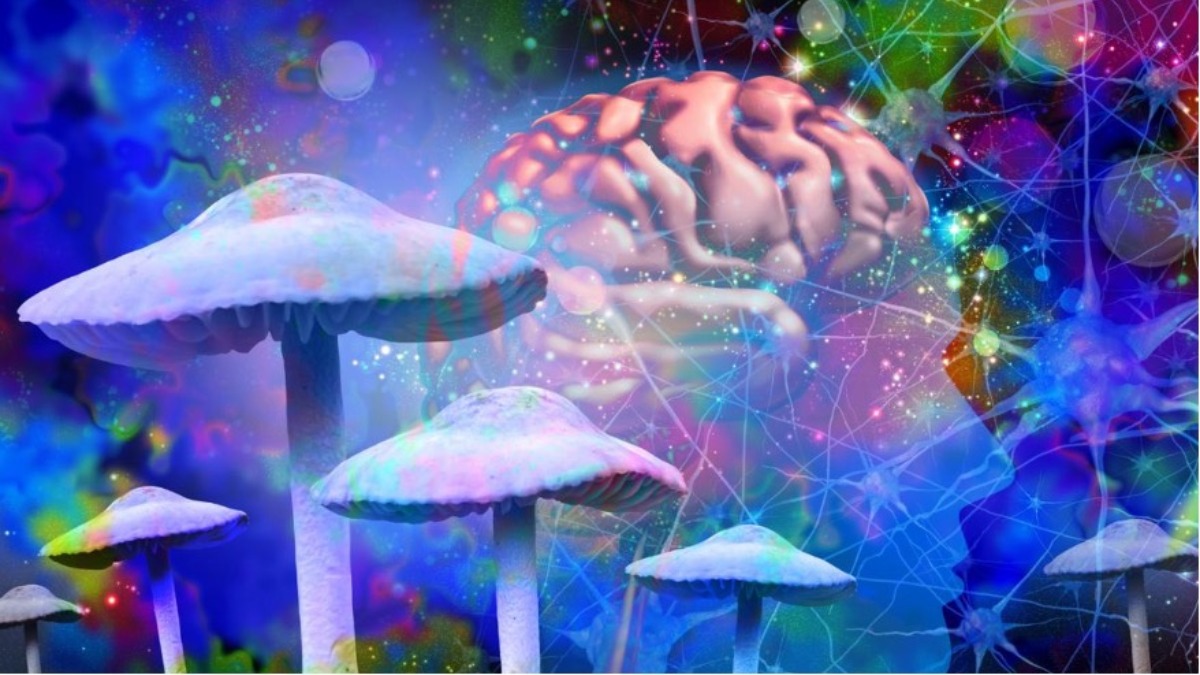Bioxyne highlights risks of unregulated psychedelic use

Bioxyne says regulation is important in safe use of psychedelics and cannabis to treat mental health. Pic: Getty Images
- Bioxyne emphasises importance of stringent regulatory frameworks for safe use of psychedelics and cannabis
- Company highlights risks of incorrect dosages, impure substances, and lack of medical supervision
- Bioxyne subsidiary awarded Australia’s first GMP licence to manufacture psilocybin and MDMA along with one to produce medicinal cannabis
The parent company of Australia’s first Good Manufacturing Practice (GMP) licensed Australian manufacturer of MDMA and psilocybin, Bioxyne, has highlighted risks of unregulated use and says moves towards self-medication highlights a critical gap in the healthcare system.
Bioxyne (ASX: BXN) CEO, Sam Watson, confirms there is an acute need for accessible and effective alternative therapies supported by robust regulation to ensure patient safety and efficacy.
“In recent years, there has been a significant shift observed in how individuals address mental health and well-being, with a growing number of people turning to substances like magic mushrooms and cannabis for self-medication,” he says.
“This trend underscores both a deep-rooted desire for alternative therapies and a pressing need for robust regulation to ensure safety and efficacy.”
Watson says magic mushrooms, which contain psychoactive compounds such as psilocybin (psilocin) and other tryptamine alkaloids, have been used for centuries in various cultures for spiritual and medicinal purposes.
“In contemporary society, they are increasingly sought after for their potential to alleviate conditions such as depression, anxiety, and post-traumatic stress disorder (PTSD),” he says.
“Similarly, cannabis, with its myriad compounds including THC and CBD, has gained popularity for managing chronic pain, anxiety, and other health issues.”
Watson notes anecdotal evidence and emerging scientific studies suggest that these substances can offer significant therapeutic benefits.
“It is not widely known that MDMA was used by a few dozen psychotherapists in the US between 1977 and 1985, when it was still legal, and was showing huge promise in treating Vietnam war veterans with severe PTSD.”
Risks of unregulated use
Despite their potential benefits, Watson says the use of psychedelics and cannabis without professional guidance carries substantial risks.
“Incorrect dosages, impure substances, and the absence of medical supervision can lead to adverse effects, including psychological distress and physical harm,” he added.
Watson says the risks are further compounded when individuals forage for magic mushrooms, without knowing precisely what they are looking for, and precisely what they might have found in the wild.
He says that danger was highlighted in April by the death of a woman and illness of two others after consuming a beverage allegedly containing foraged mushrooms during a health retreat in Victoria.
Imperative need for regulation
Watson says to address concerns, it is crucial to implement stringent regulatory frameworks for psychedelics and cannabis.
“Such regulations should mandate thorough testing and compliance with Good Manufacturing Practices (GMP) to ensure that products are safe, pure, and effective,” he says.
“GMP certification requires manufacturers to adhere to high standards of quality control, from sourcing raw materials to final product testing.
“This helps prevent contamination, incorrect labelling, and variability in potency, which are common issues in the unregulated market.”
BLS Wholesalers Pty Ltd (BLWS), which is wholly owned by Breathe Life Sciences (BLS), itself in turn a wholly owned subsidiary of BXN, is currently the only licensed Australian manufacturer of MDMA and psilocybin.
BXN announced in April that BLWS had been granted an upgraded and amended wholesale licence for MDMA and Psilocybin (Schedule 8) finished products by the Therapeutic Goods Administration (TGA).
In February, the Company initially announced BLWS was awarded Australia’s first GMP licence to manufacture psilocybin and MDMA along with one to produce medicinal cannabis.
Watson says the GMP licence demonstrates its commitment to the responsible manufacture of alternative medicines which can provide solutions to mental health disorders resistant to current treatments.
BLWS also operates the CanxChange.com.au platform in Australia, which is a marketplace solution to help licenced businesses and pharmacies navigate the highly regulated medical cannabis market environment safely, with greater transparency and ease.
Australia leader in recognising psychedelics as medicine
Last year, Australia become the first country in the world to recognise psychedelics as medicine after the TGA approved psychedelic substances used in magic mushrooms and MDMA.
From July 1, 2023, medicines containing the psychedelic substances psilocybin and MDMA can be prescribed by authorised psychiatrists in Australia for treating certain mental health conditions.
Under the new guidance, the TGA permitted the prescribing of MDMA for the treatment of post-traumatic stress disorder (PTSD), and psilocybin for the treatment-resistant depression.
Ensuring access through approved channels
Watson says in addition to stringent manufacturing standards, access to psychedelics and cannabis should be managed through approved prescriber channels.
“This approach ensures that patients receive these substances under the guidance of qualified healthcare professionals who can provide proper dosage recommendations, monitor for side effects, and integrate these treatments into a comprehensive care plan,” he says.
“By limiting access to approved prescribers, we can prevent misuse and ensure that patients receive the maximum therapeutic benefit from these substances.
“Moreover, this system can facilitate ongoing research and data collection, furthering our understanding of the efficacy and safety of psychedelics and cannabis.”
Watson says the rising interest in self-medicating with magic mushrooms and cannabis reflects a broader search for effective mental health treatments.
“However, to harness the full potential of these substances safely, robust regulatory measures are essential,” he says.
“Ensuring thorough testing and compliance through GMP-certified manufacturers and bolstering access via approved prescriber channels and clinics are crucial steps in this process.
“By doing so, we can protect public health while opening new avenues for therapeutic innovation.”
In conclusion, Watson highlights that as society continues to explore the potential of alternative treatments for mental health, a balanced approach that prioritises safety, efficacy, and accessibility will be key to their successful integration into modern medicine.
This article was developed in collaboration with Bioxyne, a Stockhead advertiser at the time of publishing.
This article does not constitute financial product advice. You should consider obtaining independent advice before making any financial decisions.
Related Topics

UNLOCK INSIGHTS
Discover the untold stories of emerging ASX stocks.
Daily news and expert analysis, it's free to subscribe.
By proceeding, you confirm you understand that we handle personal information in accordance with our Privacy Policy.








